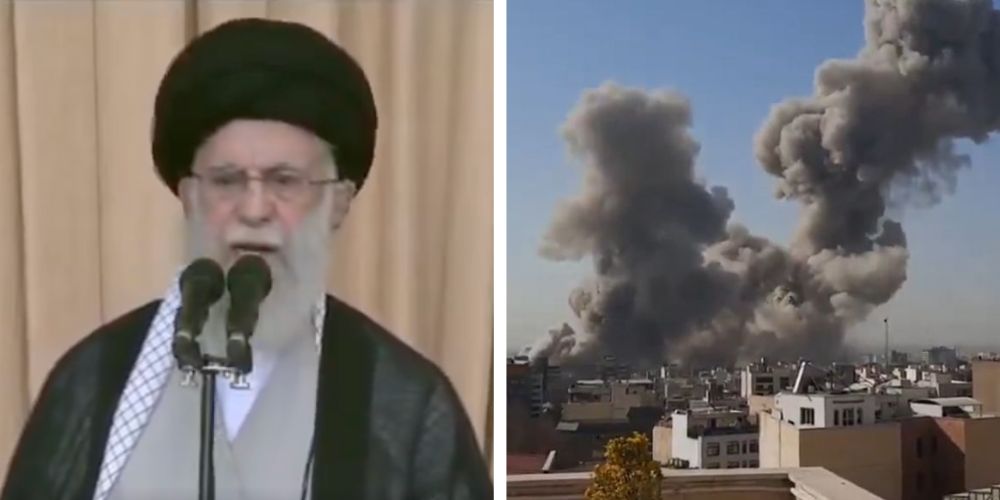Last weekend, former President Jimmy Carter criticized George W. Bush’s presidency as “the worst in history” in international relations, and told a BBC radio audience that British Prime Minister’s loyalty to Bush was “abominable.” Blair, he said, had been “loyal, blind, apparently subservient.”
It was the fourth time in the last six years that Carter has cast Bush as our “worst” president ever. He has inadvertently done us a favor by reminding us that there was a very ugly era when things were far worse than they are today - the period of 1976 to 1980, known as “The Carter Years.”
At a time when the Washington establishment was the target of widespread public disgust - with the Vietnam war, Watergate and the Nixon resignation - Carter’s campaign emphasized that he was an “outsider” and that strategy helped him edge out Gerald Ford in the 1976 race. Carter had huge Democrat majorities in the House and Senate. In 1976, Democrats held 292 House seats, compared to 143 for the GOP. Their lead in the Senate was 61 to 38 with one Independent. In 1978, the margin was reduced slightly: 277 to 158 in the House and 57/42/1 in the Senate. Getting congressional approval of his proposals should have been almost automatic. But Carter’s complete inexperience with the operations of the federal government were painfully obvious from his first day in the White House. His first priority was a package of tax, welfare and civil service “reforms”. He was unable to get it through Congress. He failed again when he attempted to get bills passed creating a consumer protection agency or an attempt to control rising hospital costs.
In the wake of OPEC doubling and then redoubling petroleum prices, Carter’s energy legislation also failed primarily because it would have brought the nation’s oil and gas industries under a complex web of federal restrictions and regulations. He did succeed in setting up the Departments of Energy and Education but neither emerged as anything more than new add-ons to an already top-heavy federal bureaucracy.
If the “proof of the pudding is in the eating,” the statistics on the Carter Administration were nauseating. Automobile prices increased 72%. New house prices went up 67%. In 1979 alone, gasoline prices increased 60%. The inflation rate went from 6.8% in 1977, to 7.6% in 1978, to 11.5% in 1979, to 12.4% in 1980. National productivity declined sharply. The unemployment rate was roughly double what it is today under President Bush. Interest rates soared. By the time Carter left office, the prime rate was 21.5% - a new record.
On July 15, 1979, the television networks aired Carter’s infamous “Malaise Speech” -written by Chris Matthews, currently the host of “Hardball” - which declared that the nation had reached a “crisis of confidence.” It was widely criticized as being a “huge depressant” at a time when America needed encouragement and a pep talk. Three days later, Carter called for the resignations of all of his Cabinet members. To further underscore the crisis atmosphere, he symbolically lowered the thermostats in the White House and other federal facilities to 65 degrees in the winter, and raised them in the summer to 78 degrees. Promotional pictures showing the President in a heavy sweater were supposed to inspire everyone to “follow the leader”. The national Christmas Tree was not lighted in 1979 and 1980. But few were impressed and even fewer were motivated.
In his first month in office, Carter cut the defense budget by $6 billion. He then proceeded to order a severe reduction in our forces stationed in South Korea to just 14,000 air force personnel. When Major General John Singlaug, chief of staff of our operations in South Korea, criticized the plan, Carter fired him. (Carter himself abandoned the plan after removing only 3,600 troops.)
It is Carter’s signature on the Panama Canal Treaty of 1977 which surrendered U.S. control of that waterway to the Panamanian government.
When the Soviet Union invaded Afghanistan in 1979, Carter flexed the U.S. muscle, declaring: “Let our position be absolutely clear. An attempt by any outside force to gain control of the Persian Gulf region will be regarded as an assault on the vital interests of the United States of America, and such an assault will be repelled by any means necessary, including military force.” To show the Russians that he meant business, Carter prohibited our athletes from participating in the 1980 Olympics in Moscow which, of course, enabled the Soviets to capture even more gold medals.
And now he calls the Bush policy “the worst in history.” Carter stated: “We now have endorsed the concept of pre-emptive war where we go to war with another nation militarily, even though our own security is not directly threatened, if we want to change the regime there or if we fear that some time in the future our security might be endangered.” What he attacks now seems to be almost identical to the “Carter Doctrine” of 1979. Maybe, he’s forgotten.
Carter’s worst failure - the one which ultimately was his downfall - was his pathetic mishandling of the Iranian government’s seizure of our embassy in Teheran in November, 1979. His attempted military rescue of the 52 Americans held hostage there was an embarrassing disaster. The hostages were eventually freed within minutes of Ronald Reagan being sworn in as Carter’s successor.
I suspect that Carter’s current campaign of attacking Bush is because he himself has been so widely cast as “the worst President in history” that he is desperately trying to drag someone else down to that position. Carter’s horrendous record is going to make that very difficult, if not impossible.





